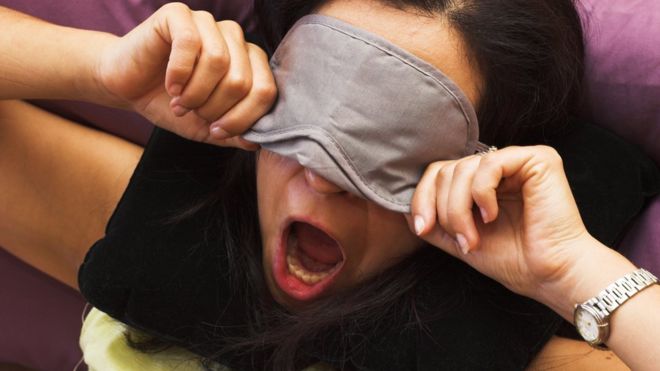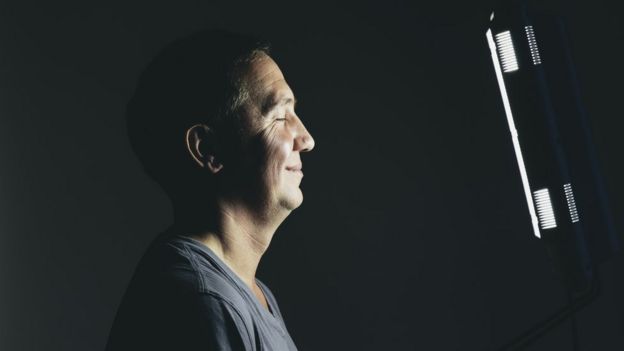- 9 February 2016
- Health
-
(건강) 광선(光線)을 잠깐 쐬는 걸로 비행시차증 극복아름다운 인생/건강 2016. 2. 10. 18:39
출처: http://www.bbc.com/news/health-35523024
Flashes of light may stop jet lag 광선(光線)을 잠깐쐬는 걸로 비행시차증 극복
 Thinkstock
ThinkstockExposure to short flashes of light at night could help sleeping travellers adjust to new time zones and avoid jet lag, according to US scientists. 미국 과학자들의 연구에 의하면, 야간에 잠깐 광선(光線)을 쐬는 걸로 다른 시간대로 비행하는 사람들의 비행시차증을 극복하게 된다.
The light beams travel through the eyelids and this tells the brain to re-set the body's inner biological clock, the Stanford researchers believe.
They tested the method in 39 volunteers and found it shifted a person's body clock by about two hours.
An hour of the flashlight therapy was enough to achieve this effect.
Body clock 생체시계
People's bodies synchronise to the 24-hour pattern of daytime and night they are used to. And when they travel across time zones to a new light-dark schedule, they need to realign.
While most people can easily manage a long-haul flight across one or two time zones, crossing several time zones messes with the body clock.
 SPL
SPLJet lag can leave travellers tired, irritable and disorientated for days.
As a remedy, some people take melatonin tablets, which mimic a hormone released in the evening.
Some try phototherapy - light boxes that simulate daylight.
But Dr Jamie Zeitzer and colleagues at Stanford University School of Medicine believe sleeping in front of a strobe light could work better.
They asked volunteers to go to bed and wake up at the same times every day for about two weeks.
Next, they were asked to sleep in the lab, where some were exposed to continuous light and others a strobe light (two-millisecond flashes of light, similar to a camera flash, 10 seconds apart) for an hour.
The flashing-light group reported a nearly two-hour delay in the onset of sleepiness the following night.
In comparison, the delay in sleepiness was 36 minutes for the continuous-light group.
Dr Zeitzer calls his therapy "biological hacking". Cells in the back of the eye that detect the light send messages to a part of the brain that sets the body clock.
The light fools the brain into thinking the day is longer than it really is, which shifts the inner clock.
"This could be a new way of adjusting much more quickly to time changes than other methods in use today," Dr Zeitzer said.
Flashing light was particularly powerful because it gave the light-detecting cells at the back of the eye a chance to recover or recalibrate in the darkness between the flashes, he added.
Stuart Peirson, an expert in neuroscience at Oxford University, said: "It is great to see advances in this area being translated into effective treatments.
"Whilst drugs can be used to shift the clock, light is readily available and is what our bodies have evolved to respond to.
"I'm amazed that they got such a dramatic effect.
"You would normally have to sit in front of a light box for several hours to get an effect.
"The idea underlying this is certainly based on solid biology."
'아름다운 인생 > 건강' 카테고리의 다른 글
(건강) 걸음마 단계지만 놀라운 새 암치료법 (0) 2016.02.17 (건강) 알츠하이머 병을 예방할 수 있는 약이 있는가? (0) 2016.02.15 (건강) 알자지라(Aljazeera)의 한국 음주문화에 대한 보도 (영문) (0) 2016.02.09 (건강) 취약점을 찾아 빈대를 스캔해보다 (0) 2016.02.05 (건강) 세계최초로 췌장이식 수술 받은 주사바늘 공포증 환자 (0) 2016.01.29